
B L N F S H D T C M G P R A O U E I


dannsa daraich
thar bhàrr nan coille
craobh-dìon nan druidh
druim an luingeis
iolaire nan craobh
bradan nan craobh
leòmhann rìoghail
nan craobh
air an raon eòlach
damh cabrach
nan craobh
dance of the oak
above the forests
the druid’s shelter-tree
the spine of great ships
eagle of trees
salmon of trees
regal lion
of trees
and on familiar lands
antlered stag
of trees
Best known for its strong wood and great age, oaks usually live for six to eight hundred years, and can live well over 1,000, or even 2,000.
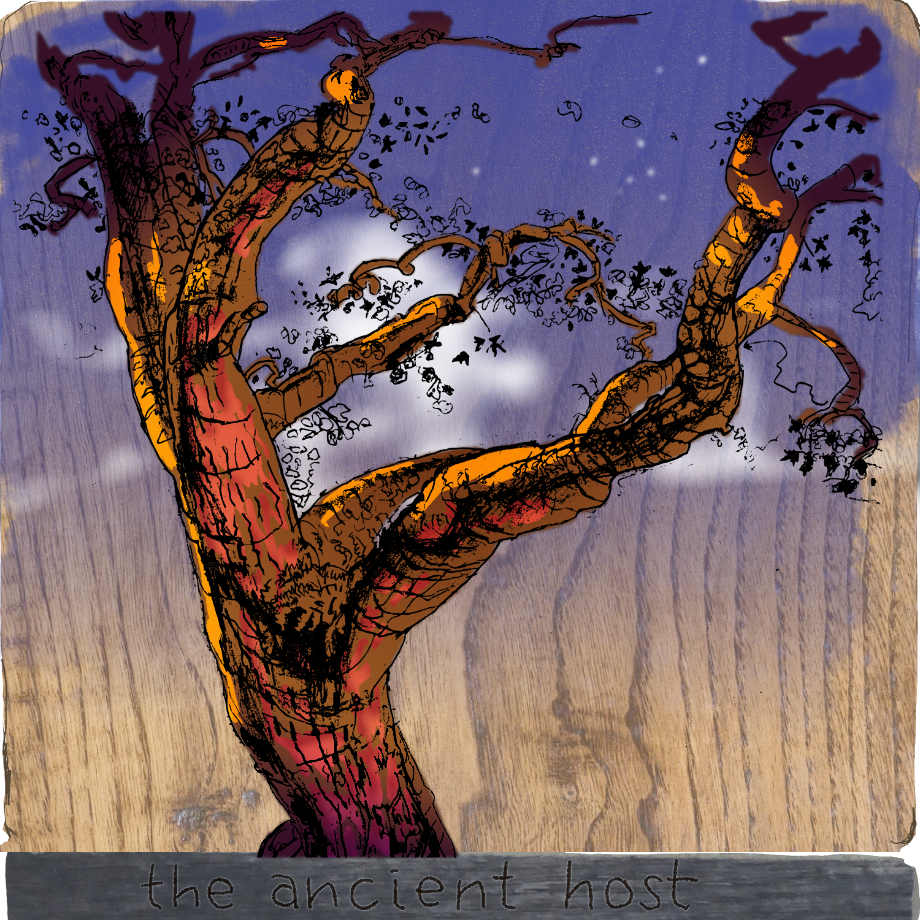
Less well-known is that more than two thousand species of insects depend on it for food and shelter, as well as a vast number of birds and animals of which some, like squirrels and jays bury acorns as larders which they then often then forget, that helps regeneration. Its generous presence means it is well named as king of the forest.
Its bark protects it from heat, and can help it survive forest fires, but lightning strikes the oak more often than most trees. Oaks like to grow above underground watercourses and possess strong electrical currents, far higher than that of any other tree. Curiously, oak is sensitive to hard frost, which is why it is one of the last trees to produce leaves in spring

The canopy of the pedunculate oak can be huge and very irregular in shape, with single branches spreading far out in seemingly very random ways, whilst the wide root system is even larger and tied in to a vast fungal system.
Tanna is an old German word for Tannenbaum, or oak. Its wood was used for tanning animal hides into leather, hence the words 'tan' and 'tanning'. In the Highlands, this was often done by placing the leather in a burn for a month, while the Romans used large, shallow outdoor tanning ponds.
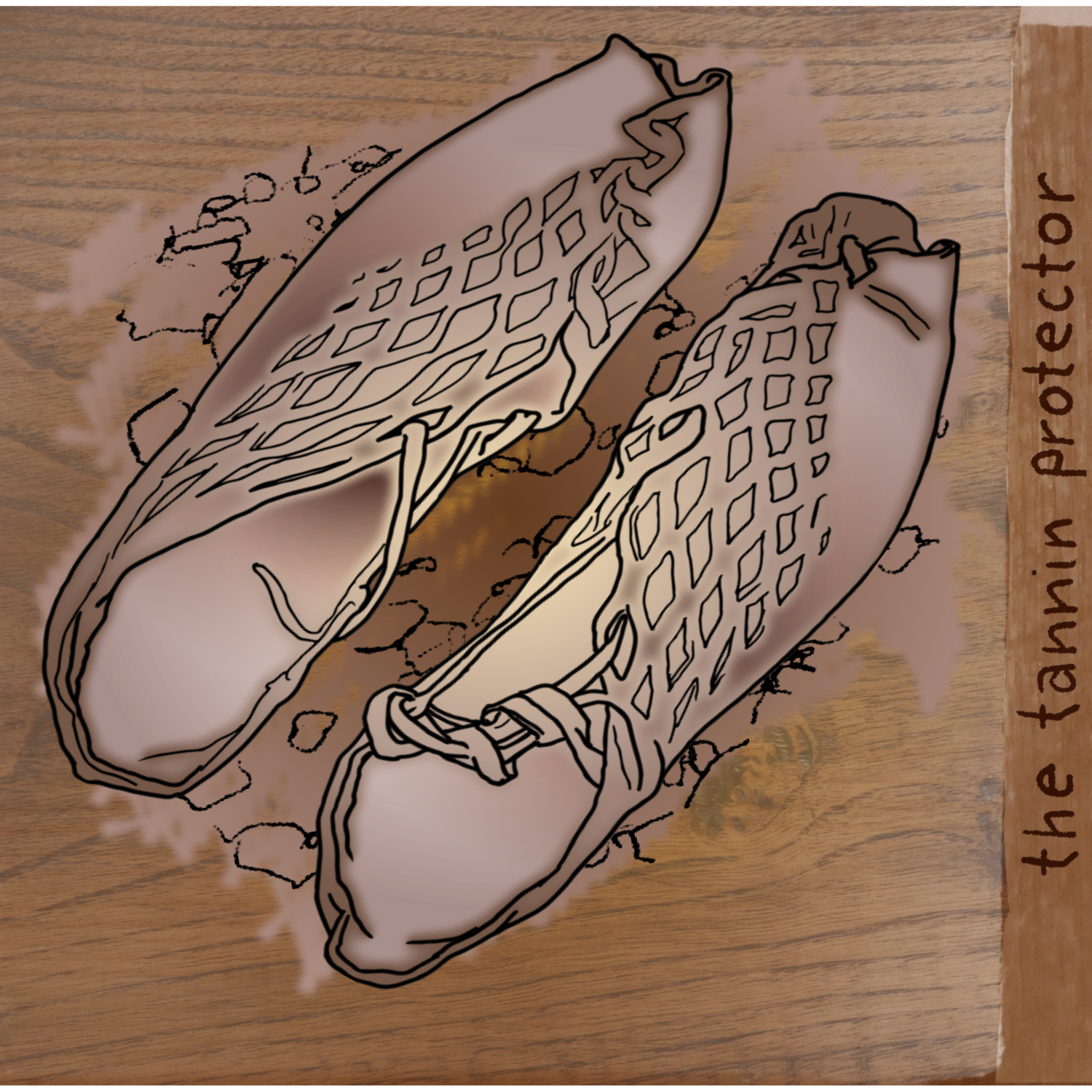
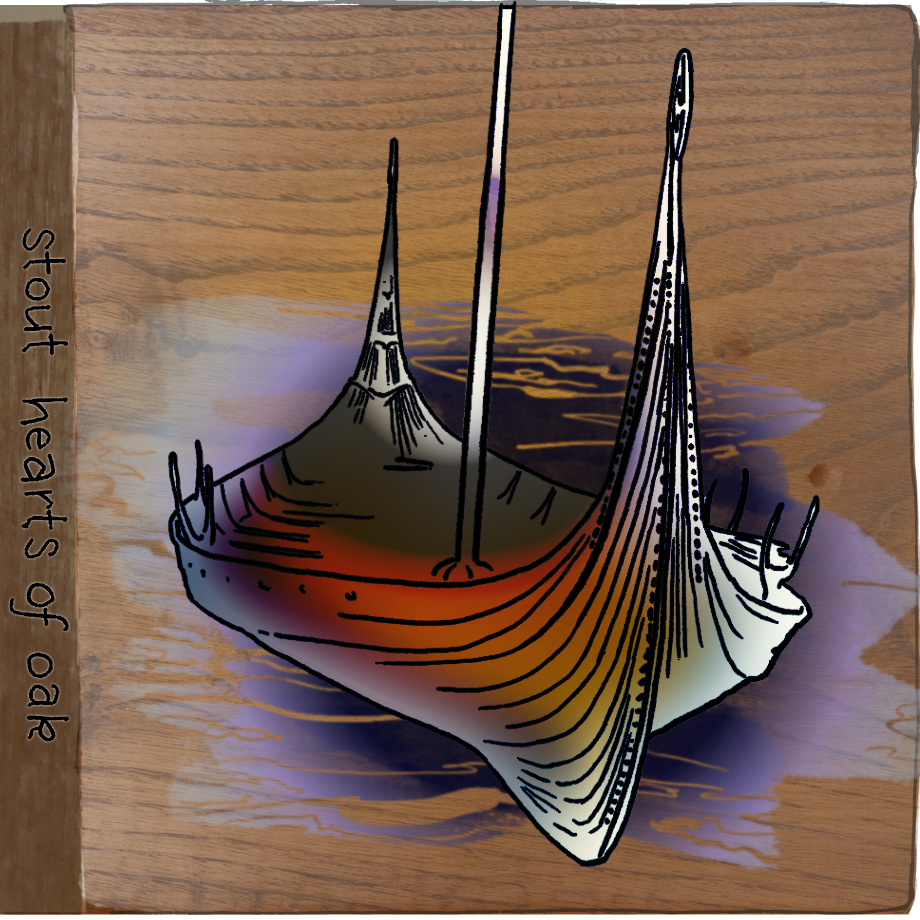
Oaks are usually 70-80 years old before they produce acorns, and after a hundred years old they grow ony an inch each year. Oak wood is used for boat-building, barrels, beams and many uses in building, fencing, mining, garden furniture, sawdust as well as smoking herrings. Bark produces red and brown dyes, while the galls give a black dye, it is also used medicinally for treating malaria, dysentry, bleeding gums, sore throat, haemorrhage, and boiled it gives tonic for harness sores. Twigs make toothbrushes, galls make ink and acorns make wine. Oak belongs to the beech family: fagaceae pedunculate oak (quercus robar) sessile oak (quercus petraea)
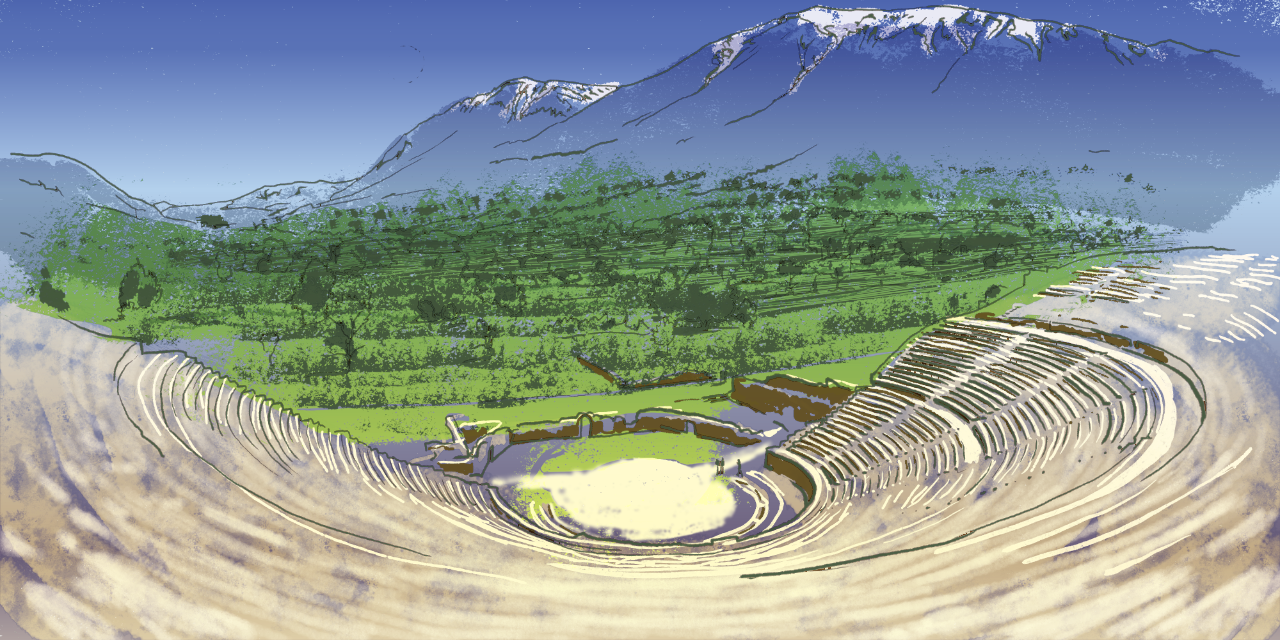
The sacred oak at Dodona, in Greece, was a major oracle of the Old World, and an international place of pilgrimage for nearly a thousand years. Its messages were interpreted from the rustling of its branches, from the murmur of the sacred spring that welled from beneath its roots, and through selection of one of the many oracle lots kept in an urn beneath it.
Thor and Lugh (the ‘Shining One’) are both oak gods and guardians who are entitled to thunder
(and use the lightning bolt) and Lug,
a many talented god of the Tuatha de Danaan representing justice in particular,
is often depicted as three headed. In the Welsh poem Battle of the
Trees Oak’s connection as door between worlds is made:
Before him tremble heaven and earth,
stout doorkeeper against the foe,
is his name in all lands.
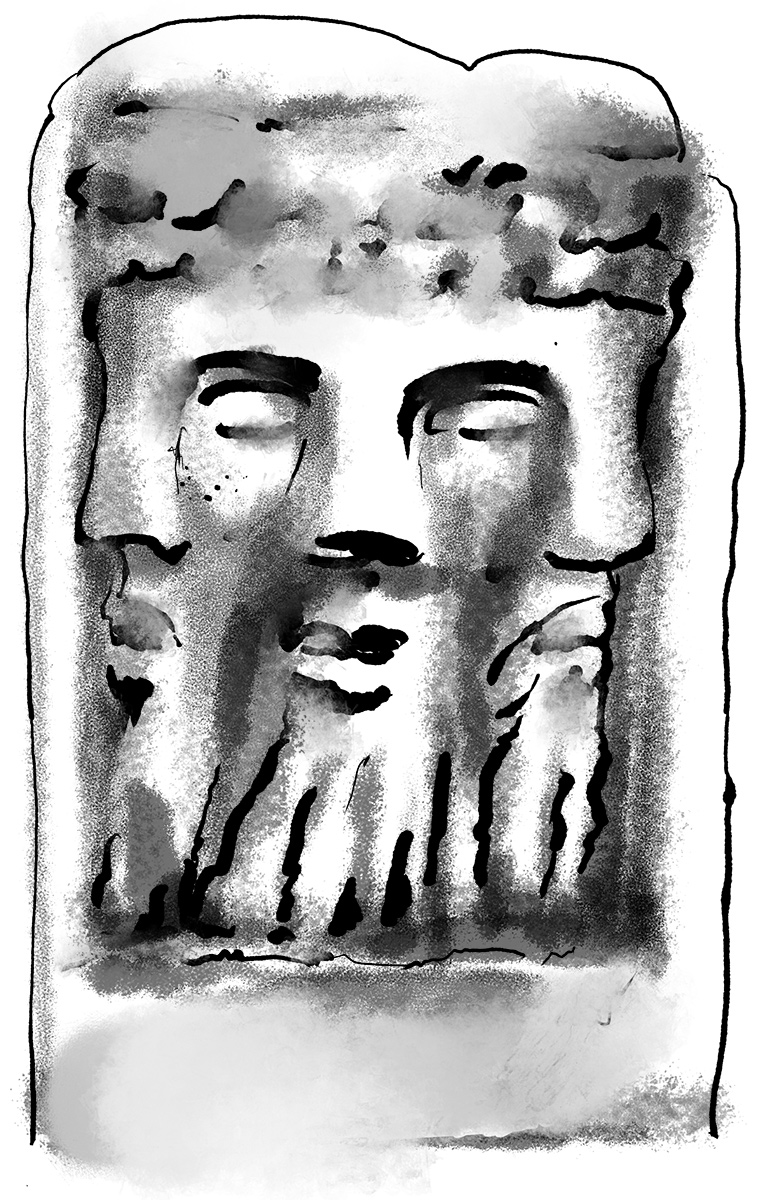

The word Duir (oak) means door, as does druid. A druid is therefore a doorman or guardian of the door. It is a door that looks both ways - and Duir/oak ends the first half of celtic year at midsummer solstice. A similar figure in Roman times is Janus, who is usually illustrated with two heads that look either way.
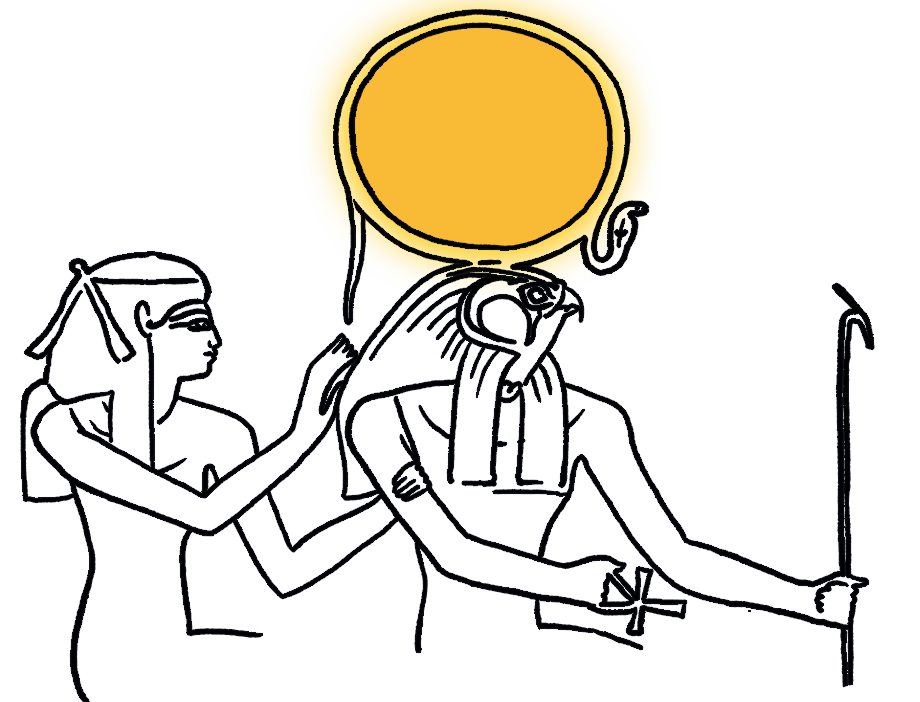
Oak has connections with the Egyption Amon Ra whose eight-rayed sun-disc and immortality is displayed, similar to Lugnasadh's sun disc on the Gundestrop Cauldron, so that as mistletoe grows on oak, their strength lies “between heaven & earth”. In Ogham, kingship is defined by the first digit of index finger and is Thursday (Thor's day), or Jupiter with two vertical upward strokes and often represented by May 24—Jun 20 (hence the 21st becomes 'and a day' or a 'day out of time')